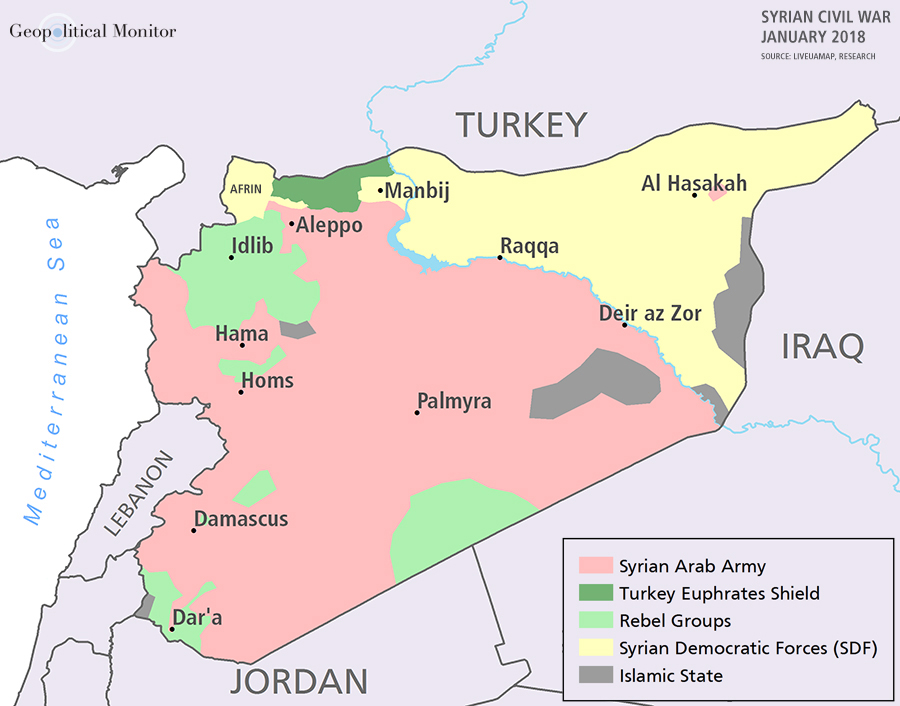The post Operation Carwash: Lula’s Presidential Hopes Dealt a New Blow appeared first on Geopolitical Monitor.
]]>A Brazilian federal court in Porto Alegre has unanimously rejected the appeal of ex-president and current presidential candidate Luis Ignacio Lula da Silva, thus upholding a conviction related to his taking $1.1 million in bribes while in office. Lula’s original sentence of nine and a half years in prison was subsequently increased to 12 years. The court decision may jeopardize Lula’s run for the presidency in late 2018, and in doing so change the landscape of Brazilian politics for years to come.
Background
The anti-laundering probe “Operation Carwash” has caused a series of political uproars by exposing corruption at the highest levels of the Brazilian government. Investigations have resulted in the impeachment of former President Dilma Rousseff, Lula’s chosen successor and fellow Workers Party (PT) leader, as well as corruption allegations against current President Michel Temer. The probe also unveiled illicit dealings between the Brazilian construction company Odebrecht and government officials across Latin America. The exposure of rampant corruption has left many Brazilians disillusioned with the political process, with polls showing up to 32 percent of voters will not vote for any candidate in upcoming elections in October of this year.
The post Operation Carwash: Lula’s Presidential Hopes Dealt a New Blow appeared first on Geopolitical Monitor.
]]>The post Turkish Offensive against the Kurdish Enclave of Afrin appeared first on Geopolitical Monitor.
]]>
Summary
Turkey has launched a military offensive called “Operation Olive Branch” against the Kurdish People’s Protection Units (YPG) in the Kurdish majority enclave of Afrin in northwestern Syria. The Turkish military has been shelling YPG positions in Afrin while deploying ground troops and rallying Syrian rebel militias against the YPG. Turkish forces have captured several villages in Afrin along the Turkish-Syrian border, and intense fighting between Turkish-backed rebels and the YPG has occurred in the adjacent town of Tel Rifaat.
Turkish officials claim that they will swiftly rid Afrin of the YPG, which Turkey regards as a terrorist organization. However, the offensive poses severe humanitarian concerns and may undermine the interests of both the United States and Russia in Syria.
Background
Turkey regards the entrenchment of the YPG, a close offshoot of the Kurdistan Workers Party (PKK), along the northern Syrian border as a significant security threat. Having fought an ongoing insurgency against the Kurdish militant group in southeastern Turkey, the Turkish state’s security interests in Syria have often conflicted with those of the United States, as exemplified by Turkey’s refusal to intervene during ISIS’ siege of the YPG-held town of Kobane in 2014. In 2016, Turkey and allied Syrian rebel groups launched Operation Euphrates Shield against ISIS in the Syrian border area between the Euphrates River and Afrin with the ulterior motive of preventing the YPG-dominated Syrian Democratic Forces (SDF) from connecting Afrin to the rest of its territory after capturing the city of Manbij on the western bank of the Euphrates River. While Turkey grudgingly tolerates US-backed SDF operations in eastern Syria, support for the YPG continues to be a source of tension between the two NATO allies. Indeed, Operation Olive Branch began a week after news broke that the SDF was forming a border security force of 30,000 personnel with US training and support.
The post Turkish Offensive against the Kurdish Enclave of Afrin appeared first on Geopolitical Monitor.
]]>The post IMF Warns on China’s Financial System (Again) appeared first on Geopolitical Monitor.
]]>The International Monetary Fund (IMF) has warned that China’s financial stability is at significant risk. On December 6, the IMF released its 2017 Financial Sector Stability Assessment benchmarking the health of China’s financial sector since its last assessment in 2011. While praising China’s economic growth, the assessment found that there are many areas that China’s financial system is vulnerable to instability.
Background
While Western economies slumped after the 2008 global financial crisis, China continued to experience impressive levels of growth. China’s GDP has expanded by 60 percent since 2011, causing poverty rates to fall and financial inclusion to increase. China’s growth has been driven in large part by investment in manufacturing goods for export. In order to sustain its growth, China is now pivoting towards a consumer-driven, service sector-led economy.
The post IMF Warns on China’s Financial System (Again) appeared first on Geopolitical Monitor.
]]>The post Russian Debt Restructuring Keeps Venezuelan Government Afloat appeared first on Geopolitical Monitor.
]]>Venezuelan President Nicolas Maduro announced on November 2 that he wants to restructure and refinance Venezuela’s foreign debts. While Maduro did not explicitly say that the government is going into default, the restructuring announcement signals that Venezuela may not be able to continue making payments in the near future. Despite the country’s ongoing economic crisis, the Venezuelan government has continuously made payments on its foreign debts over the years. On November 9, the Venezuelan state oil company PDVSA managed to pay an overdue principal of $1.1 billion. While the payment shows that the Venezuelan government still intends to continue meeting its foreign debt obligations, PDVSA has still not paid $500 million in interest on the principal payment.
The post Russian Debt Restructuring Keeps Venezuelan Government Afloat appeared first on Geopolitical Monitor.
]]>